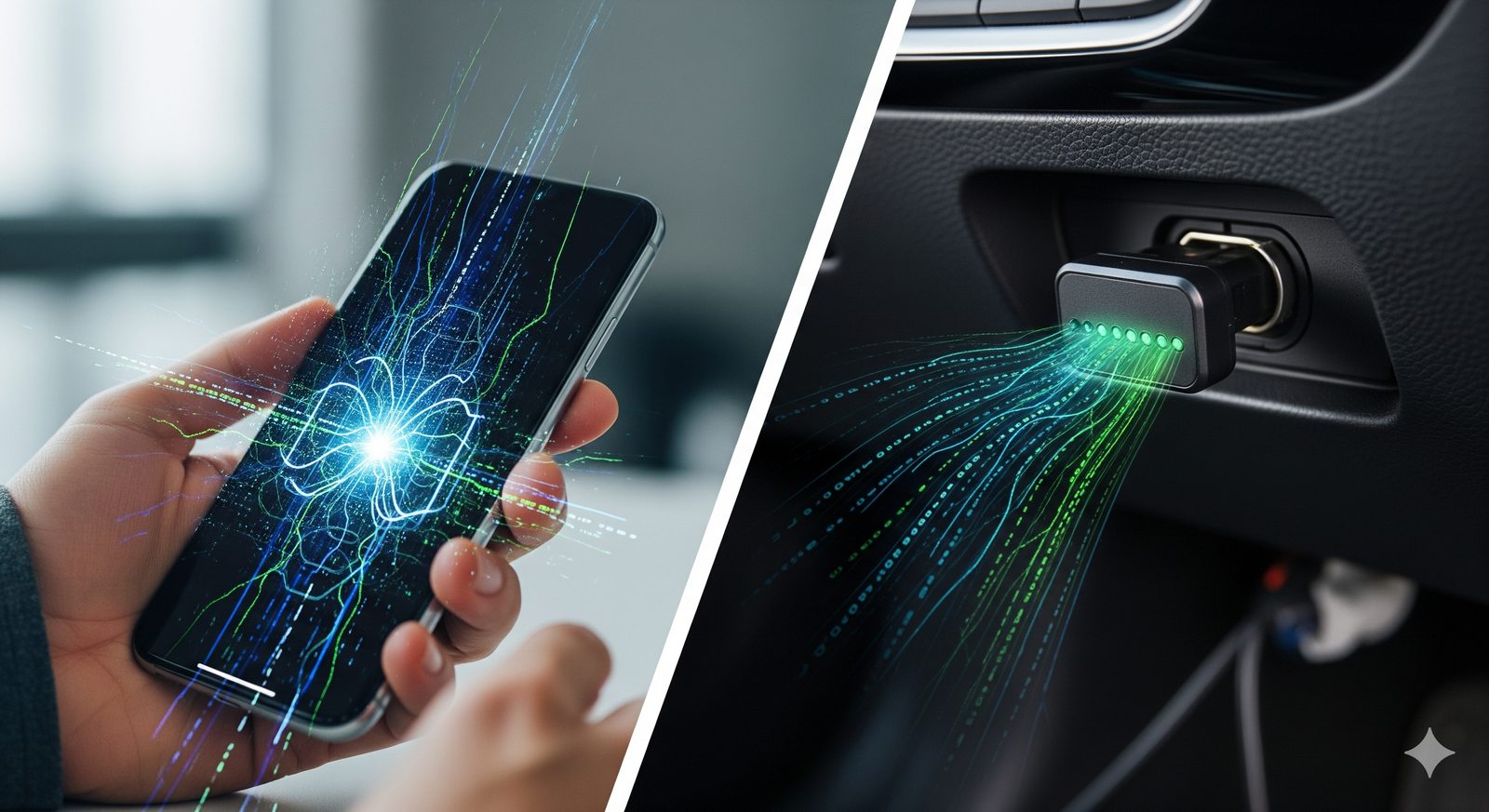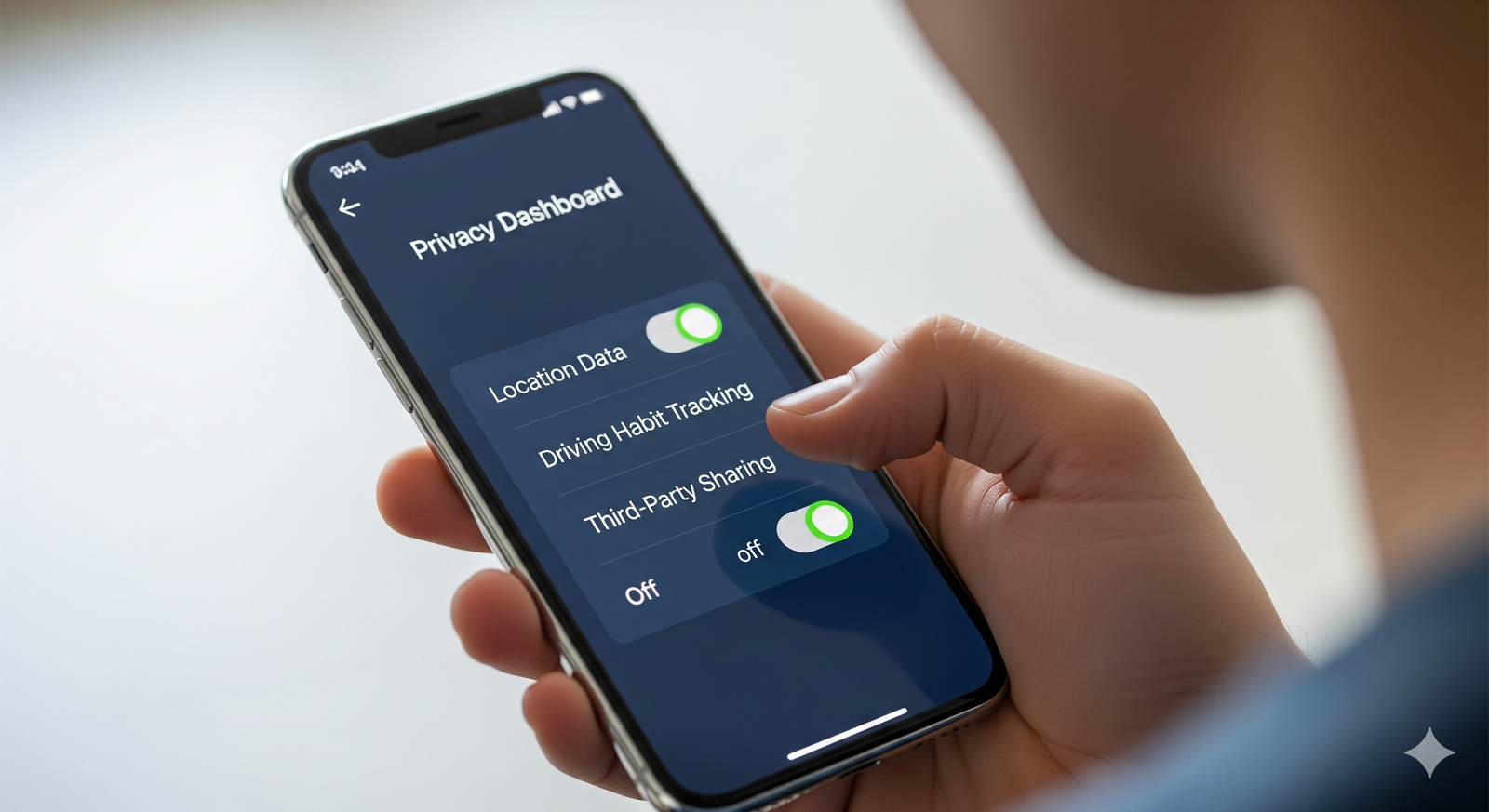Hey everyone! I’m Adnan from The Insurtech Guide. Usage-based car insurance is a fantastic deal: let an app track your driving, prove you’re a safe driver, and get a cheaper premium. Companies like Root and Metromile have built their entire business on this model. But as I’ve used these apps, a critical question has always been on my mind: in our quest for savings, what are we giving up in terms of privacy?
These apps collect a massive amount of data on our most personal habits—where we go, how fast we drive, even when we touch our phones. So, I decided to do what most of us don’t: I sat down and waded through the dense privacy policies of both companies.
This isn’t just another feature comparison. This is a deep dive into the Root vs Metromile privacy debate. My goal is to help you understand exactly what you’re agreeing to, so you can make a decision that’s right not just for your wallet, but for your peace of mind too.

Table of Contents
How Telematics Data Collection Works
Before we compare them, it’s essential to understand what “telematics data” is. Both Root and Metromile use sensors (either in your phone or a separate device) to track your driving behavior. This includes:
- GPS & Location: Where you drive, how often, and the routes you take.
- Driving Behavior: Your speed, how hard you brake, how sharp you turn, and the times of day you’re on the road.
- Phone Usage (Specifically for Root): How you interact with your phone while driving.
This data is the “secret sauce” they use to calculate your personalized rate. The more data they have, the more accurate their risk assessment is. Understanding this is the first step in any Root vs Metromile privacy analysis.
The Root vs Metromile Privacy Showdown

I analyzed both companies based on how they collect and use your data. The differences are significant.
Root Insurance: The Intensive “Test Drive”
Root’s entire model is based on an upfront “test drive” that lasts several weeks.
- Data Collection Method: Root uses the sensors in your smartphone to monitor you. This is the key difference. Because it’s your phone, the app can potentially access more data, including your interactions with the phone itself (like tapping or swiping) to determine if you’re driving distracted.
- What I Found in Their Policy: Their policy is clear that they collect a wide range of data during the test drive, including location, speed, braking, and phone handling. The most sensitive part for me was the monitoring of phone interaction.
- Privacy Takeaway: Root’s method is more invasive. The trade-off is that they promise to use this detailed data to give a very accurate rate based purely on your driving skill. You must prove you’re a good driver before they even offer you a policy.
Metromile: The Pay-Per-Mile Approach
Metromile’s focus is less on how you drive and more on how much you drive.
- Data Collection Method: Metromile primarily uses the Pulse device, a small gadget that plugs into your car’s OBD-II port. This device is focused on collecting data directly from your car, such as mileage, speed, and location. It’s less about your personal phone habits.
- What I Found in Their Policy: Their policy is centered on mileage and location for billing purposes. While they do collect data on driving habits like speed and braking, their main selling point is the pay-per-mile model, not judging your driving style as intensely as Root.
- Privacy Takeaway: Metromile’s approach feels less personal because it uses a dedicated car device instead of your phone’s sensors. For people who are uncomfortable with an app monitoring their phone usage, Metromile’s method offers a clearer boundary between their personal device and the insurance monitoring.
Final Verdict: Who Protects Your Privacy Better?

After this deep dive into the Root vs Metromile privacy policies, my conclusion is that Metromile offers a more privacy-conscious approach.
The primary reason is the method of data collection. By using a separate, car-based device (the Pulse), Metromile creates a distinct separation from your personal smartphone. Root, by relying on your phone’s sensors, collects more intimate data, specifically about your phone interactions while driving.
Here’s my recommendation:
- Choose Metromile if: Your main goal is to save money based on low mileage, and you prefer a clearer boundary between your personal phone and insurance tracking.
- Choose Root if: You are a supremely confident and safe driver, you are not concerned about phone usage monitoring, and your main goal is to get the biggest possible discount based on your excellent driving habits.
Ultimately, both companies are built on a data-for-discount trade. The right choice depends on which type of data you are more comfortable sharing.





Leave a Reply